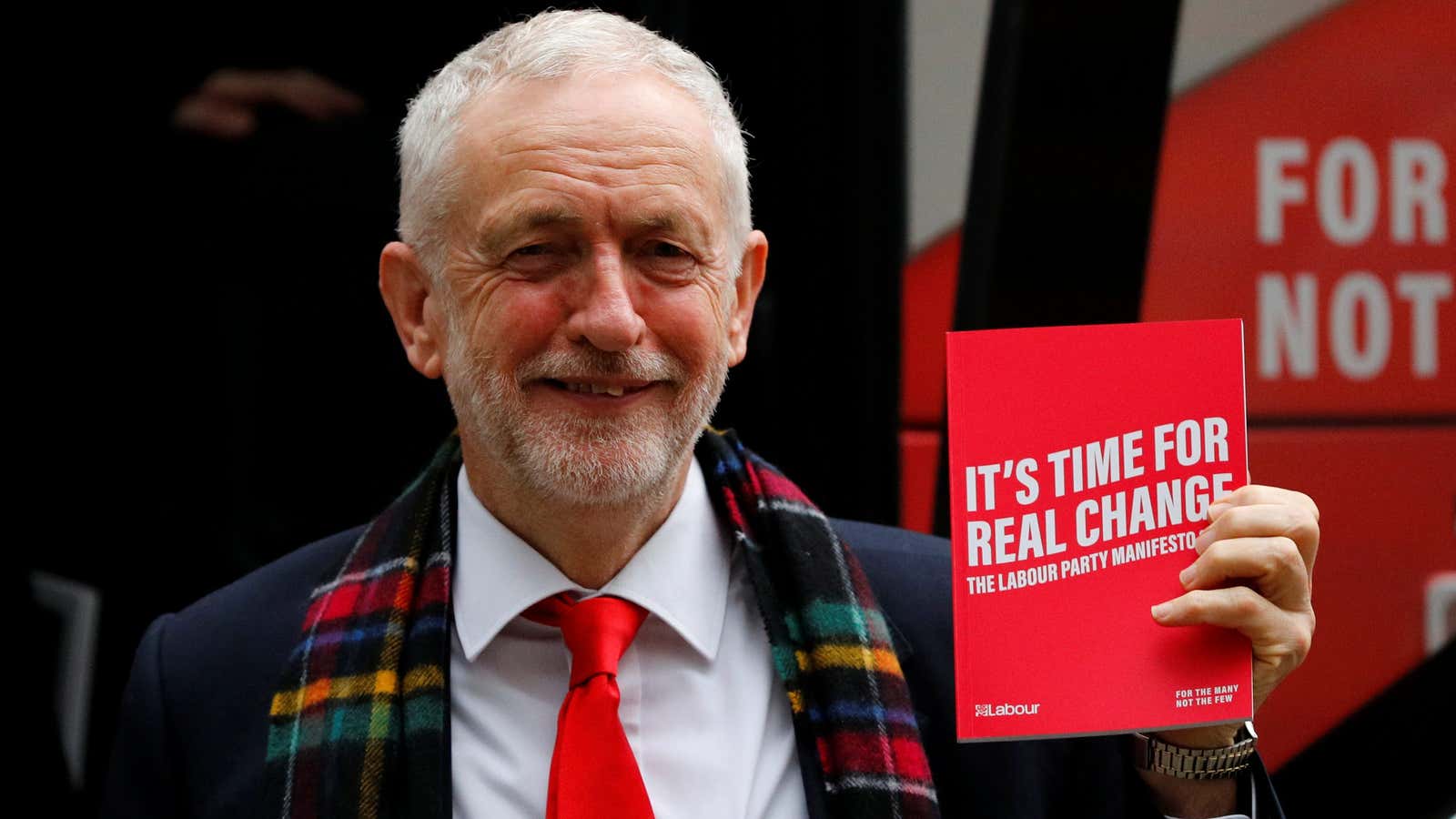The UK’s two major parties released their campaign manifestos recently, ahead of a general election on Dec. 12. The documents differ not only in their ideological leanings—Conservatives to the right, Labour to the left—but also in their sheer ambition.
How to tell? For one thing, just count the words. This year, Labour’s manifesto runs to around 26,000 words, about 5,000 more than the Conservatives. The Conservatives published lengthier manifestos than Labour in the previous two elections.
It’s a crude measure, to be sure, but also backed up by the details in the documents. Labour’s longer manifesto lays out £83 billion ($107 billion) a year in new public spending by 2023-24, compared with a mere £2.9 billion boost pledged by the Conservatives. Labour leader Jeremy Corbyn has dubbed his party’s pledges “the most radical and ambitious plan to transform our country for decades.” Among them are proposals to nationalize a slew of sectors, including railways, broadband, postal services, and water and energy firms.
Many of Labour’s proposals are popular in surveys. Fifty-six percent of voters support nationalizing of railways, for example, versus 22% opposed. Even bigger majorities say they are in favor of higher taxes on the rich, which would be required to fund Labour’s proposals.
Since releasing its manifesto, Labour has announced an additional £58 billion in spending over five years to women born in the 1950s who lost out on pension payments. The move compensates women for the increase in the retirement age from 60 to 65.
Labour currently lags far behind in the latest polls, suggesting that Boris Johnson’s Conservatives are on track for a comfortable majority. This might have to do with the personal unpopularity of Corbyn. Although Johnson also attracts a net unfavorable rating from voters, it is less severe than the gap for Corbyn.
The cautious, “deliberately dull” Conservative manifesto can be understood in this context. Johnson’s predecessor as prime minister, Theresa May, unveiled a more ambitious set of pledges ahead of the 2017 vote. A proposal buried in the document to make older Brits pay part of their healthcare was labeled a “dementia tax” and became the object of scorn. The Conservatives went on to lose their majority in Parliament, despite a commanding early lead in the polls.
